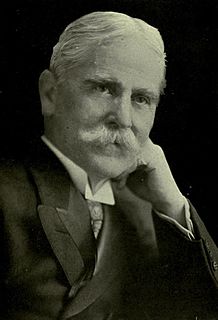A Quote by Sylvia Earle
The ocean seemed like a sea of Eden. But now we are facing paradise lost.
Related Quotes
We only seem to learn from Life that Life doesn't matter so much as it seemed to do - it's not so burningly important, after all, what happens. We crawl, like blinking sea-creatures, out of the Ocean onto a spur of rock, we creep over the promontory bewildered and dazzled and hurting ourselves, then we drop in the ocean on the other side: and the little transit doesn't matter so much.
The garden [of Eden] is the realm of pure beauty from which man is expelled when he becomes interested in ethics, in the fruit of the tree of knowledge of good and evil. The return into paradise, the homecoming, depends on him penetrating the veils of morality to glimpse again the lineaments of lost beauty.
Coral reefs, the rain forest of the ocean, are home for one-third of the species of the sea. Coral reefs are under stress for several reasons, including warming of the ocean, but especially because of ocean acidification, a direct effect of added carbon dioxide. Ocean life dependent on carbonate shells and skeletons is threatened by dissolution as the ocean becomes more acid.





































